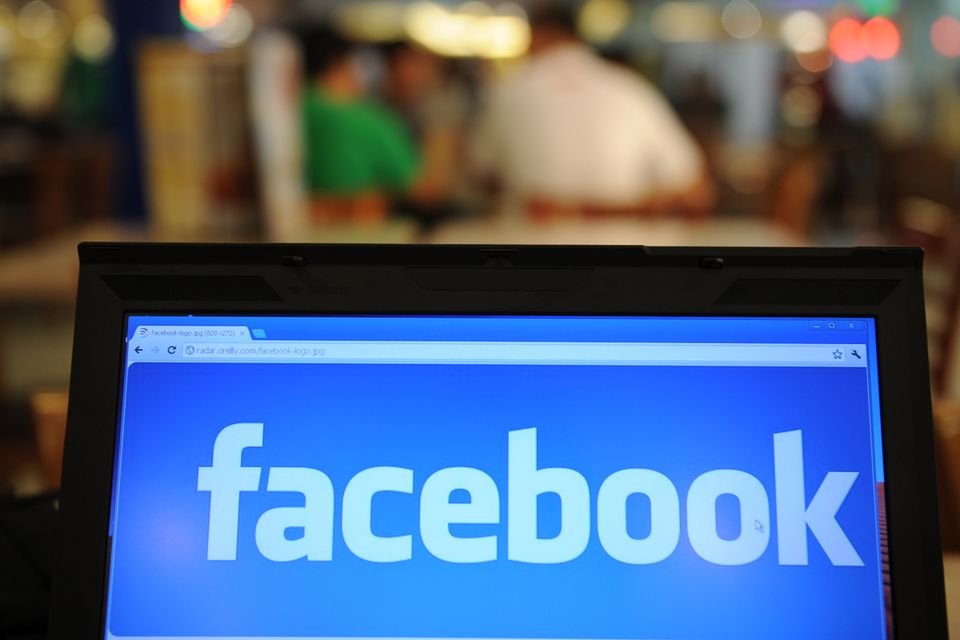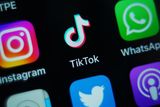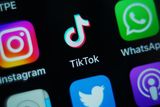Steve Dempsey: How Facebook ate the media - and what media companies can do about it
'The report is called The Facebook-Media Relationship Status: It's Complicated. It aims to examine Facebook's relationship with the news industry and explain how its news feeds work.' Photo: Getty
The Reuters Institute recently found that 44pc of people across 26 countries now rely on Facebook for news. Factor in Facebook Messenger, WhatsApp, and Instagram, and up to 55pc discover news content on apps and algorithms designed by Mark Zuckerberg and Co.
But Facebook still insists it's not a media company. "We build the tools, we do not produce any content," Zuckerberg said recently. It's not the most credible claim. And it's one that comes under the microscope of a new report from the International News Media Association, which refers to Zuckerberg as the "super editor-in-chief".
The report is called The Facebook-Media Relationship Status: It's Complicated. It aims to examine Facebook's relationship with the news industry and explain how its news feeds work. And it does so in an interesting way - by examining Facebook's patents.
"Facebook's algorithms are the invisible hands of the most powerful news editor in the world but we know very little how they work," says Grzegorz Piechota, the report's author. "Patents show that the platform has been designed to facilitate private interactions between users, and has always prioritised their private content. Facebook's News Feed is clearly optimised for engagement, not to inform people about what's going on. When Facebook ranks stories, it has no way to judge stories' merits, so it rather tracks and calculates the probability of a user interacting with a story, like sharing it."
Piechota found that Facebook's algorithms change regularly and these changes can have huge implications for media companies that rely on the social network for traffic acquisition. "Facebook tweaks its algorithms frequently, a few times a week," he says. "It is doing surveys to identify problems or opportunities, and then it runs tests on groups of users before it releases the change worldwide. Most of the changes go unannounced. "Sometimes the change is significant and has a profound impact on news consumption. For example: 79 out of the top 100 US digital publishers receiving Facebook referral traffic saw it decrease in Q2 2016 versus Q1 2016, according to SimilarWeb, an analytics company. New York Times fell by 25pc, CNN by 33pc, Newsweek by 47c. Facebook has never explained what happened."
But media companies aren't just relying on Facebook as a referrer of traffic. Many of them are now relying on Facebook to monetise content through the likes of Facebook Instant Articles. Through Facebook's Audience Network they'll soon be able to fill inventory with ads from Facebook.
"Publishers report mixed experiences with monetisation of ads sold for Instant Articles," Piechota says. "For example, Liberation in France claims it has been getting a better cut from ads sold by Facebook than when it sells on its own, and the Independent in the United Kingdom has found the opposite. We're at an early stage in the development of monetisation models for content on Facebook. The platform hasn't needed them so far as it has been flooded with free content. Video seems to be changing that. To disrupt television advertising markets, digital platforms like Facebook need to provide high quality content. Amateurs and their private clips alone won't do anymore."
This is good news for media companies that can create valuable video content that Facebook users can like, share and discuss. But not great news for creators of general news, as Facebook now does a better job of many of the activities that previously created or captured value in the media industry, including aggregation, advertising and distribution.
"While journalism may be needed now more than ever, its financial and operating models have been disrupted by the likes of Facebook and Google," says Piechota.
"Software companies grew big and important because they excelled in innovation and provided great service to users. With such scale, though, comes greater responsibility and scrutiny about what service or disservice they do to society. We should expect more transparency about what social platforms filter, what societies learn about the world, more acknowledgement and accountability for their editorial choices, and collaboration with the news media to find ways to secure the future of our free and self-governing societies."
The report concludes by suggesting that publishers need to fully engage with digital transformation. But not a transformation that's focused on technology, but one which requires a re-engineering of the fundamental relationship between media brands and their audience. As a result, media companies shouldn't see Facebook as a silver bullet in relation to their online evolution. "Publishers need to look at Facebook in context of their whole digital strategy to evaluate opportunities and risks of doing business with the platform," Piechota says. "I'd suggest the pragmatic approach to Facebook and other platforms. There are more choices than love or hate. It's not marriage. It's just business."
Join the Irish Independent WhatsApp channel
Stay up to date with all the latest news















